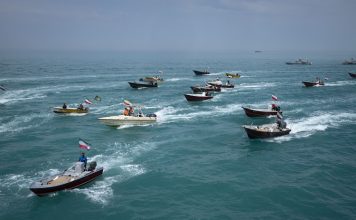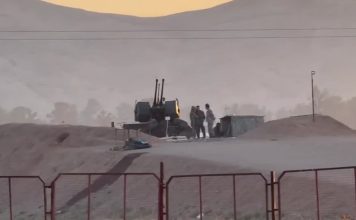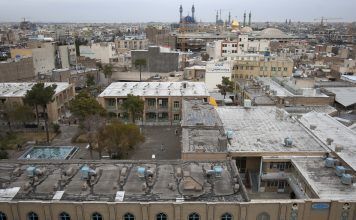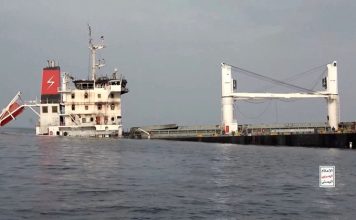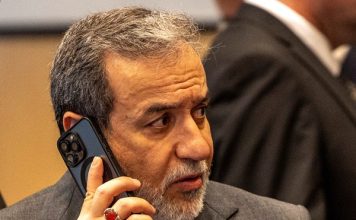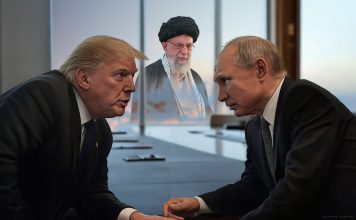By Angus Berwick
Aug 28 (Reuters) – A Colombian businessman detained in Cape Verde in June was on a mission to Iran as a special envoy of Venezuelan President Nicolas Maduro to negotiate fuel and humanitarian supplies at the time of his arrest, his lawyers told Reuters.
Authorities in Cape Verde detained Alex Saab when his private jet stopped to refuel just after 8 p.m. on June 12, acting on an international arrest warrant for money laundering charges filed last year in the United States.
[aesop_image img=”https://kayhanlife.com/wp-content/uploads/2020/06/Alex-Saab.jpg” panorama=”off” credit=”Alex Nain Saab Moran. Kayhan London” align=”center” lightbox=”on” captionsrc=”custom” captionposition=”left” revealfx=”off” overlay_revealfx=”off”]
U.S. prosecutors accuse Saab of bribing Venezuelan officials to take advantage of the state-controlled exchange rate and transferring $350 million in illegally obtained funds to overseas accounts.
Saab, who remains in a Cape Verde jail as he fights extradition to the United States, has denied the charges. His lawyers have called the U.S. charges “politically motivated.”
The Madrid-based law firm representing Saab in Cape Verde exclusively provided Reuters with details of his Iran visits and relationship with the Maduro government, along with an account of his arrest.
“Special Envoy Saab is the key figure for the U.S. in their plan to overthrow Nicolas Maduro and keep suffocating the Venezuelan people,” said a statement from Saab’s defense team, led by former Spanish judge Baltasar Garzon.
Saab’s lawyers said he made an earlier visit to Iran in April, when he persuaded Iranian officials to send oil tankers loaded with gasoline along with planes carrying refinery materials, to Venezuela to ease a fuel shortage crisis.
[aesop_image img=”https://kayhanlife.com/wp-content/uploads/2020/08/2020-02-21T000000Z_1390637802_MT1ABCPR000MY46DW_RTRMADP_3_ABACA-PRESS-scaled.jpg” panorama=”off” credit=”Baltasar Garzón. FILE PHOTO/REUTERS./ ” align=”center” lightbox=”on” captionsrc=”custom” captionposition=”left” revealfx=”off” overlay_revealfx=”off”]
He also secured medical supplies and food to help Venezuela prepare for the coronavirus pandemic, which threatened to overrun the country’s decrepit health system, the lawyers said.
Asked about U.S. officials’ comments that Caracas paid Tehran in gold for the shipments, Saab’s lawyers said the items were “paid for along standard international terms of trade using Venezuela’s own resources.”
Washington has imposed tough sanctions on trade in Venezuelan oil and gold in recent years in an effort to remove Maduro, whose 2018 reelection was widely considered a sham. The United States has also put sanctions on Iran.
Venezuela’s government, which said after Saab’s arrest that he was acting as its “agent” to secure humanitarian supplies for the coronavirus pandemic, did not respond to requests for comment.
Saab’s legal team is appealing a decision by a Cape Verde court to extradite him, arguing that he has diplomatic immunity and would not face a fair trial in the United States due to “illegal evidence.”
In a letter Saab wrote to Cape Verde’s prime minister earlier in August, he said Venezuela would offer his government “more opportunities” if authorities there released him. “I can help Cape Verde more than the United States will do in 100 years,” Saab wrote in the letter, seen by Reuters.
Saab’s arrest was a dramatic turn for the man who had risen from a textile company owner in Colombia to become a powerful intermediary for the Venezuelan government, considered a dictatorship by most Western nations.
[aesop_image img=”https://kayhanlife.com/wp-content/uploads/2020/08/2020-07-23T000000Z_1916012298_MT1LTANA000XBYPER_RTRMADP_3_ALEX-SAAB-AMERICA-COLOMBIA-LATIN-AMERICA-NICOL-S-MADURO-POLICE-VENEZUELA.jpg” panorama=”off” align=”center” lightbox=”off” captionsrc=”custom” caption=”BARRANQUILLA, COLOMBIA.- In the photo taken on July 23, 2020, the 3,740-square-meter mansion in the city of Barranquilla, Colombia, and valued at almost eight million dollars, which was seized by the Colombian Prosecutor’s Office from Alex Saab, the figurehead of Nicolás Maduro. The house, located in an exclusive area of the Caribbean city, has swimming pools, Jacuzzi, games area, spa areas, gardens and a tennis court. In addition, the prosecution seized two houses, a 379-square-meter apartment and three garages, also in the city of Barranquilla. Together, all the properties are valued at more than 10 million dollars. REUTERS./ ” captionposition=”center” revealfx=”off” overlay_revealfx=”off”]
As the Trump administration tightened sanctions, Saab has leveraged his international contacts to help Maduro barter his remaining resources to obtain aid from allies like Iran.
Saab’s relationship with the Venezuelan government began in 2011, when he secured a contract to build public housing, his lawyers said. The U.S. indictment against Saab alleges he made “corrupt payments” in connection with this deal.
In 2018, Maduro named Saab a special envoy to “collaborate” with foreign governments “to find solutions to Venezuela’s complex situation,” his lawyers said.
When the coronavirus pandemic began spreading through Latin America early this year, the lawyers said Venezuela’s foreign ministry entrusted Saab with “the responsibility of acquiring greatly needed humanitarian resources.”
During his April visit to Iran, Saab told Iranian officials that Venezuela needed shipments of gasoline, as U.S. sanctions had restricted the Maduro government’s ability to import material needed to produce it.
The Iranians agreed to send eight oil tankers, along with 16 flights coordinated by Iran‘s Mahan Air, his lawyers said.
Iran‘s government did not immediately respond to a request for comment.
Flight tracking services showed 16 Mahan Air flights arriving in Venezuela in late April and May. At the time, a senior PDVSA official said the flights were bringing chemicals needed in the refining process to make gasoline.
Iran also sent five tankers carrying gasoline to Venezuela starting in May, which helped to ease temporarily the scarcity of gasoline. However, the United States this month seized four cargoes of Iranian fuel bound for Venezuela, where fuel shortages are once again worsening.
A top Iranian official involved in the talks for these shipments told Reuters the Mahan Air planes returned to Iran with gold bars worth $200 million as part of the “trade.”
Kayhan London’s Exclusive on Mahan Air’s Continued Flights to China
U.S. Imposes Fresh Iran-Related Sanctions on Two People, Six Companies
In April, some 7 tonnes of gold was withdrawn from Venezuela’s central bank, people familiar with the operations said, though they did not know its destination. The Maduro government has repeatedly sold off its gold reserves in recent years to obtain valuable foreign currency.
(Additional reporting by Belén Carreño in Madrid, Parisa Hafezi in Dubai, and Mayela Armas and Corina Pons in Caracas; Editing by Brian Ellsworth, Dan Flynn and Daniel Wallis)

